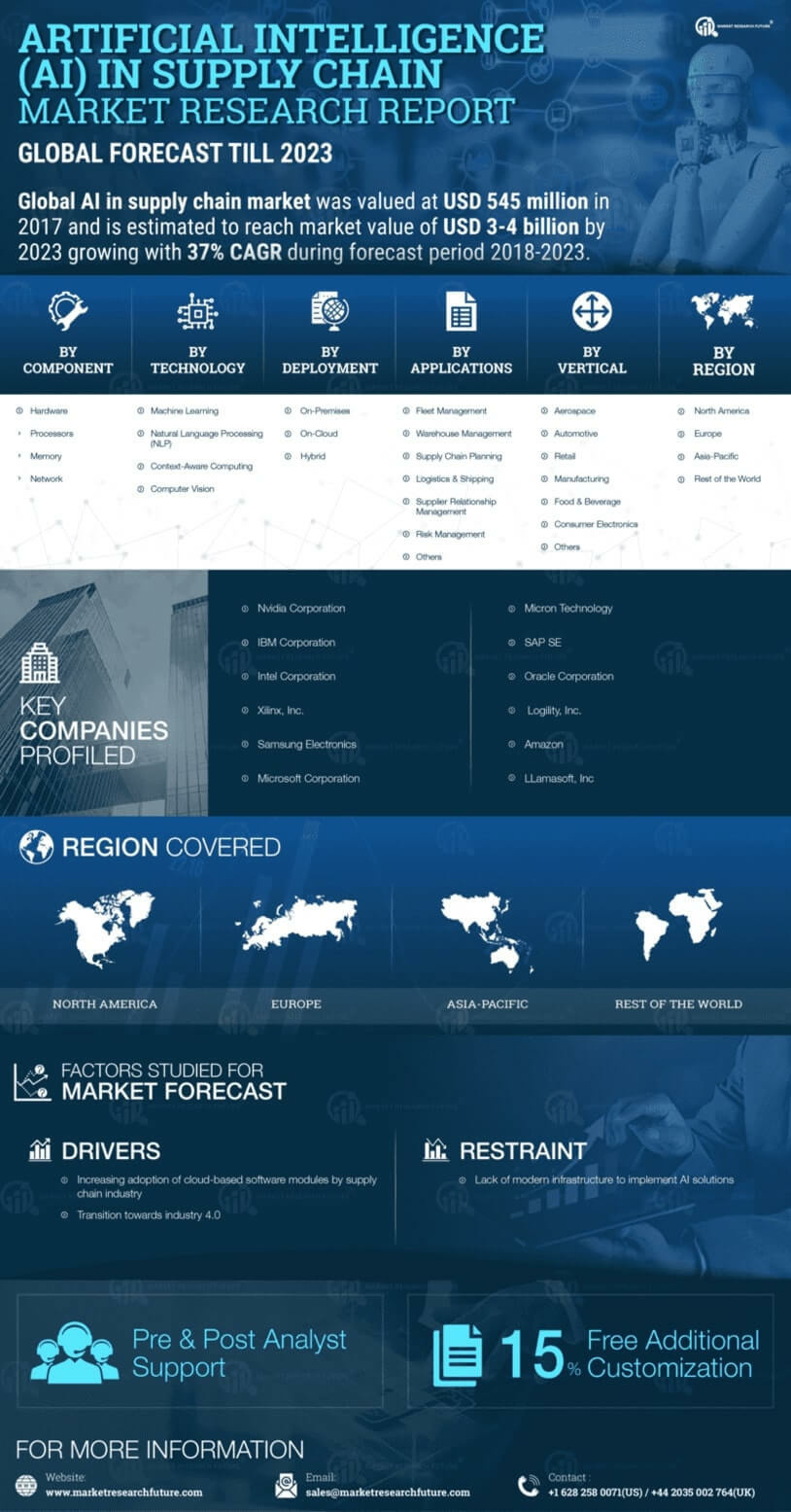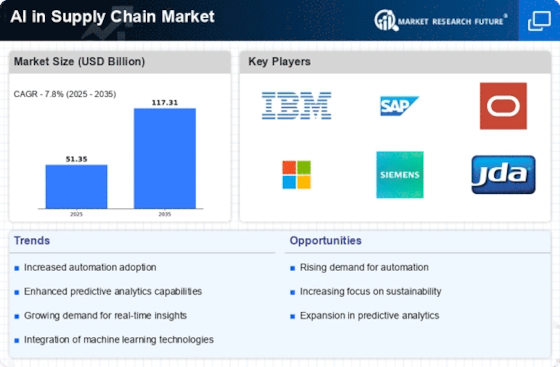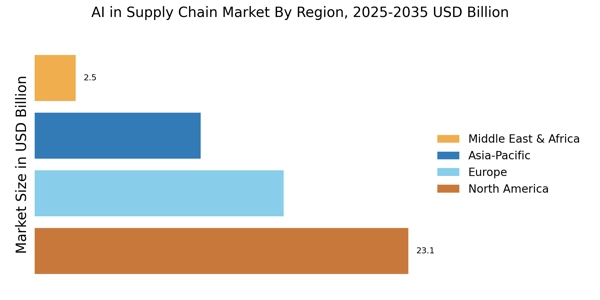Supply Chain Visibility
In the AI in Supply Chain Market, enhanced visibility across the supply chain is becoming a critical driver. AI technologies facilitate real-time tracking of goods and materials, enabling companies to monitor their supply chain operations more effectively. This visibility allows for quicker decision-making and improved risk management. For instance, organizations that implement AI solutions report a 30% reduction in supply chain disruptions. By leveraging AI for visibility, companies can identify bottlenecks, optimize routes, and enhance collaboration with suppliers and partners. This increased transparency not only improves operational efficiency but also fosters trust among stakeholders, which is essential in today's interconnected supply chain landscape.
Enhanced Demand Forecasting
The AI in Supply Chain Market is experiencing a surge in demand forecasting capabilities, driven by advanced machine learning algorithms. These algorithms analyze historical data, market trends, and consumer behavior to predict future demand with remarkable accuracy. According to recent estimates, companies utilizing AI-driven forecasting can reduce inventory costs by up to 20%. This enhanced forecasting ability allows businesses to optimize their supply chain operations, ensuring that products are available when needed while minimizing excess stock. As a result, organizations are increasingly investing in AI technologies to refine their demand planning processes, thereby improving overall efficiency and responsiveness in the supply chain.
Cost Reduction through Automation
Automation powered by AI is a pivotal driver in the AI in Supply Chain Market, as it significantly reduces operational costs. By automating repetitive tasks such as order processing, inventory management, and logistics planning, companies can streamline their operations and allocate resources more effectively. Research indicates that businesses adopting AI-driven automation can achieve cost savings of up to 25%. This reduction in costs is particularly beneficial in competitive markets where margins are tight. Furthermore, automation enhances accuracy and reduces human error, leading to improved service levels and customer satisfaction. As organizations seek to remain competitive, the integration of AI in automating supply chain processes is likely to accelerate.
Sustainability and Ethical Sourcing
Sustainability initiatives are becoming a key driver in the AI in Supply Chain Market, as companies strive to meet consumer demand for ethical sourcing and environmentally friendly practices. AI technologies facilitate the analysis of supply chain data to identify sustainable sourcing options and optimize resource usage. Organizations that implement AI-driven sustainability measures can reduce waste and improve their carbon footprint. Reports indicate that companies focusing on sustainability can enhance their brand reputation and customer loyalty, leading to increased market share. As consumers become more environmentally conscious, the integration of AI in promoting sustainable practices within the supply chain is likely to gain momentum.
Improved Supplier Relationship Management
The AI in Supply Chain Market is witnessing a transformation in supplier relationship management, driven by AI technologies. These tools enable companies to analyze supplier performance, assess risks, and identify opportunities for collaboration. By leveraging AI, organizations can enhance their negotiation strategies and foster stronger partnerships with suppliers. Data suggests that companies utilizing AI for supplier management experience a 15% improvement in supplier performance metrics. This improvement is crucial for maintaining a resilient supply chain, as strong supplier relationships can lead to better pricing, quality, and reliability. As businesses increasingly recognize the value of AI in managing supplier relationships, investment in these technologies is expected to grow.

















